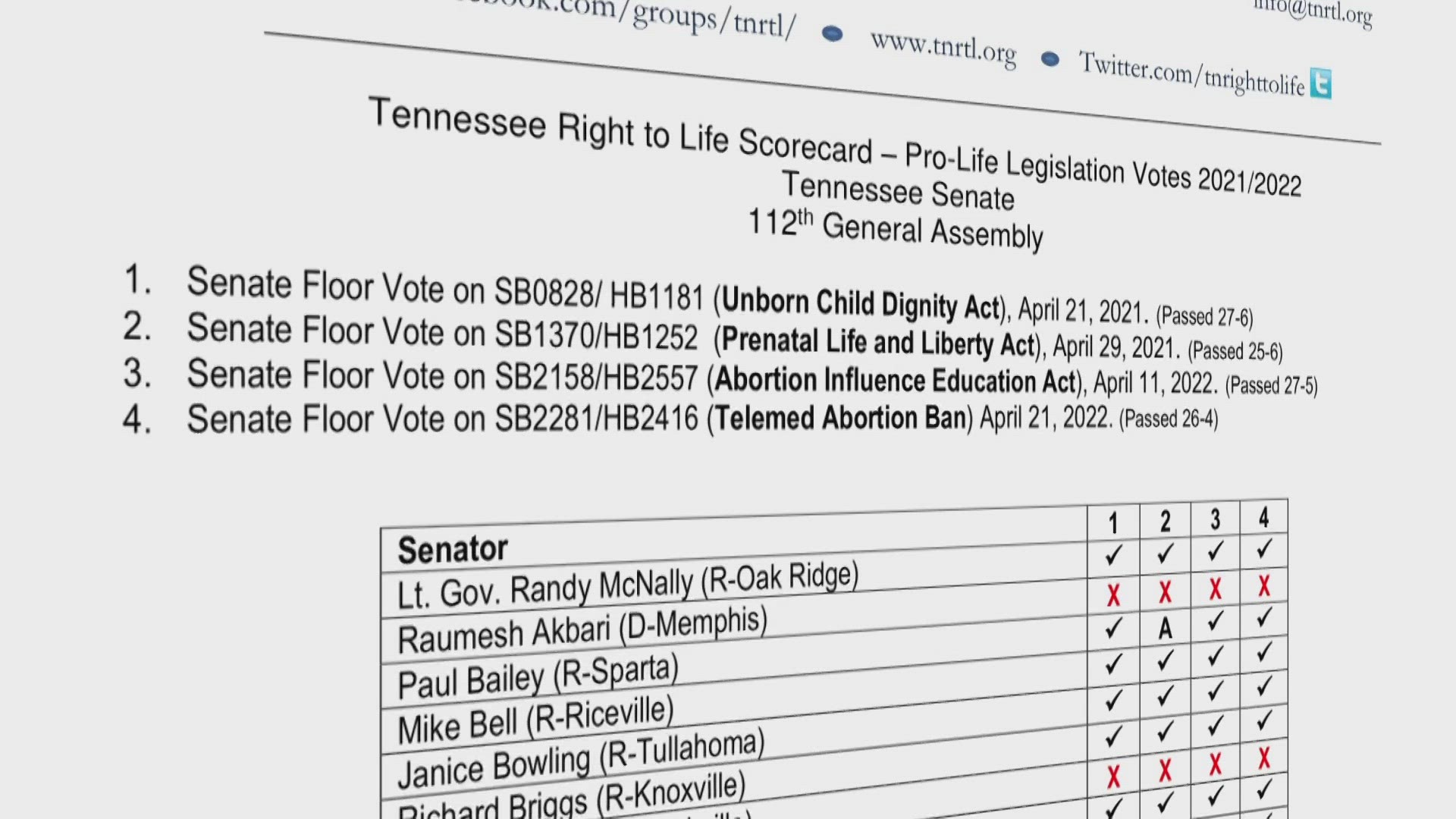KNOXVILLE, Tenn. — Kate Cox, a Texas mom of two children, was pregnant with her third child, she said. Doctors told her the unborn child had Trisomy-18, a disease where "almost all pregnancies end in miscarriage or stillbirth," according to the Cleveland Clinic.
Cox's attorneys tried to get a Temporary Restraining Order from a judge in Texas, allowing Cox to get an abortion and terminate the pregnancy. She had been to the emergency room several times because of the pregnancy. Doctors warned if she didn't get an abortion, she may not be able to have another child, attorneys said.
The trial court granted the temporary relief, but the Texas Supreme Court reversed that decision. They argued doctors didn't say Cox had a life-threatening medical condition, so Texas's abortion ban exceptions didn't apply to her. Cox eventually got an abortion in a different state, attorneys said.
"There are almost no differences between the Texas law and the Tennessee law," said Chloe Akers, a criminal defense attorney. "They read nearly identically."
Tennessee's total abortion ban has exceptions for ectopic or molar pregnancies, and cases where the pregnancy risks the life of the mother or severely affects bodily function.
"How close does the patient have to be to death before a termination becomes necessary?" Akers asked. "Here's how that law works: in the simplest of terms, the closer a patient gets to death, the further the doctor gets from jail."
Earlier this year, Senator Richard Briggs (R-Knoxville) proposed a change to the state's abortion law, which would give doctors more leeway to use their judgment. It would allow for "good faith" judgment. Tennessee Right to Life Lobbyist Will Brewer spoke against the bill, because he said it introduced subjectivity in the state's abortion law.
"I would not consider this a pro-life law," Brewer said. "In discussions with our PAC, they have informed me they would score this negatively for those members who wish to vote for it."
Lawmakers and Tennessee Right to Life agreed to language on the bill, Akers said it made Tennessee's law similar to Texas.

